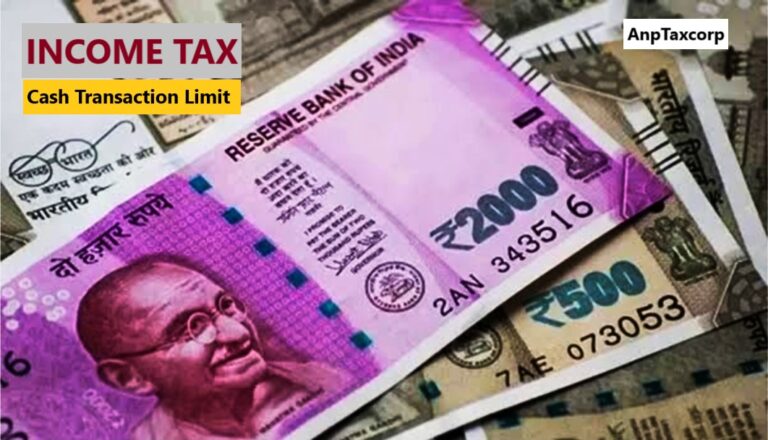Learn about important cash transaction limits under Indian Income Tax laws to stay compliant and avoid penalties. From cash deposits and withdrawals to real estate transactions, get insights into regulations and limits
Cash Transaction Limits: In the realm of financial transactions governed by Indian Income Tax laws, it’s crucial to grasp the significant thresholds and regulations to ensure adherence and prevent potential penalties. From cash deposits and withdrawals to real estate dealings, understanding these limits is essential for individuals and businesses alike. Let’s delve into the key aspects of cash transactions under Income Tax regulations in India.
Cash Deposit Limits for Savings and Current Accounts
Cash deposit limits in savings accounts are designed to monitor the flow of cash transactions and curb illicit financial activities. According to Income Tax regulations, individuals depositing INR 10 lakh or more into a savings account within a fiscal year must notify tax authorities. For current accounts, this threshold is higher at INR 50 lakh. While these deposits don’t attract immediate taxation, financial institutions are mandated to report transactions exceeding these limits to the Income Tax Department.
Tax Deducted at Source (TDS) on Cash Withdrawals
Section 194N of the Indian Income Tax Act governs TDS on cash withdrawals. Withdrawals exceeding INR 1 crore within a fiscal year incur a 2% TDS. Additionally, individuals who haven’t filed income tax returns for the past three years face a 2% TDS on withdrawals exceeding INR 20 lakh and a 5% TDS on amounts above INR 1 crore. Notably, TDS deducted under Section 194N is not treated as income but can be offset when filing Income Tax Returns (ITR).
Penalties and Regulations on Cash Transactions
Sections 269ST, 269SS, and 269T outline penalties for cash transactions exceeding specified limits. Individuals receiving INR 2 lakh or more in cash within a specific year or transaction are subject to penalties under Section 269ST. Sections 269SS and 269T pertain to cash loans, imposing penalties for accepting or repaying cash loans exceeding INR 20,000 in a given year.
Some Other Major Cash Transaction Limits
Apart from deposits and withdrawals, various other cash transaction limits exist are prescribed under Income Tax, which are given below in brief.
(i) Cash Transaction Limit: Section 269ST imposes a daily cash transaction limit of INR 2 lakh.
(ii) Cash Withdrawal Limit: Banks impose limits on large cash withdrawals to prevent illegal activities.
(iii) Cash Gift Limit: Cash gifts up to INR 50,000 per financial year from immediate relatives are exempt from taxation.
(iv) Fixed Deposit Limit: Rules govern the maximum amount that can be deposited in fixed deposit accounts.
(v) Credit Card Bill Payment Limit: Banks set limits on cash payments for credit card bills to prevent misuse.
(vi) Real Estate Transactions Limit: Strict regulations govern cash transactions in real estate to promote transparency and curb black money.
Understanding these limits and regulations is vital for individuals and businesses to ensure compliance with Income Tax laws in India. Staying informed and adhering to these guidelines can help avoid penalties and legal complications while conducting cash transactions.
To Know about 6 Crucial Cash Transactions that can Prompt I-T Dept Issuing a Notice on you CLICK HERE
To Know about Applicability of TDS on Cash Withdrawals CLICK HERE
Read More
Tax Deduction on Electoral Bond Donations to Political Parties Continues for FY 2023-24
